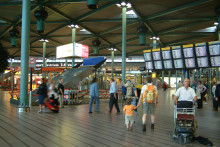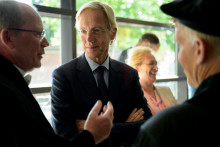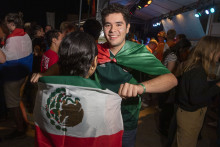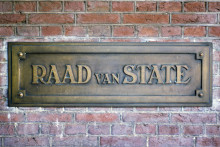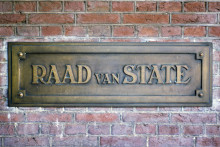Adedapo is a UT student originally from Nigeria. In August 2014, he travelled to the Netherlands for the first time in order to start his studies at the University of Twente. After a long trip lasting nearly 20 hours, he finally arrived to the Schiphol airport in Amsterdam. He knew he had to catch a train to Enschede, but didn´t know how to find the train station.
Wanting to ask for directions, Adedapo approached a man standing near the airport arrival hall. The man looked friendly enough and informed Adedapo that he just missed the last train to Enschede. The man said that there would be no other trains going to Enschede that day and he suggested that Adedapo should take a taxi to a nearby train station, where he could catch another train.
They took my luggage
´I was not familiar with the environment and didn´t know what to do, ´ says Adedapo. Before he had a chance to decide, the man took his luggage and offered to walk him to the taxi. ´As he was carrying my bag and pushing me towards a car, I knew I was in trouble, ´ explains Adedapo. Indeed, he was. The man put Adedapo´s luggage, which contained all his documents and money, to the trunk of a car. Adedapo had no choice but to also get in the car, where another strange man was already waiting.
Trying to get money
Adedapo talks about what happened next: ´We were all in the car and they started driving. Soon they began to ask me to give them my money. I said that I had no money on me, which wasn´t true. Luckily, all my money was in my suitcase in the trunk. I had only a small amount in my pocket, which they took. They didn´t believe that I had no more money and asked me to call my family, so they could send me some. I explained that my phone battery was dead and that my phone didn´t even work in the Netherlands. They kept driving and trying to persuade me to somehow contact my family in Nigeria.´
After about an hour of driving around, Adedapo finally managed to persuade the men that he could not get them any more money. ´They dropped me off in some town. I took my luggage, went to the train station and managed to get to Enschede that night, ´ says Adedapo.
Safe return
Even though Adedapo was unharmed and got to the university safely, he was in shock and too terrified to leave his room. After a couple of days, Adedapo´s family contacted the university to find out if he was alright. Staff of the International Office searched their database and found out, where Adedapo was staying. ´I went to see Adedapo immediately to make sure he was fine, ´ says Menno Bergman from the International Office. ´After I got there, Adedapo told me what happened. We gave him contact information for a student consultant, so he could get the support and help he needed.´
To end the story on a happier note, Adedapo says that he has had only pleasant experiences ever since: ´Even though the first day in the Netherlands was awful, everything else has been wonderful. This country has treated me very well and I believe I have used up all my bad luck already.´
Pick-up service for new students
´Even though I´m not aware of any other similar incidents, sharing Adedapo´s story is extremely important, ´ says Bergman. ´We need to make everybody aware that such incidents can occur. This story also stresses the importance of the pick-up service, which all international students should know about.´
Every new international student can register for the pick-up service. As a part of this service, the new student is picked up by a mentor directly at cethe airport. After students are accepted to the UT, they receive an email informing them about the pick-up service and the introduction period. All new students are also sent a link to the preparation website and the Inernational Student Handbook, both of which contain a lot of useful information about public transport and how to get to the university.
´I feel that it is our responsibility and obligation to provide information to the students. Travelling to a foreign country is very stressful and confusing, and so we should provide them with as much support as possible, ´ says Bergman.


